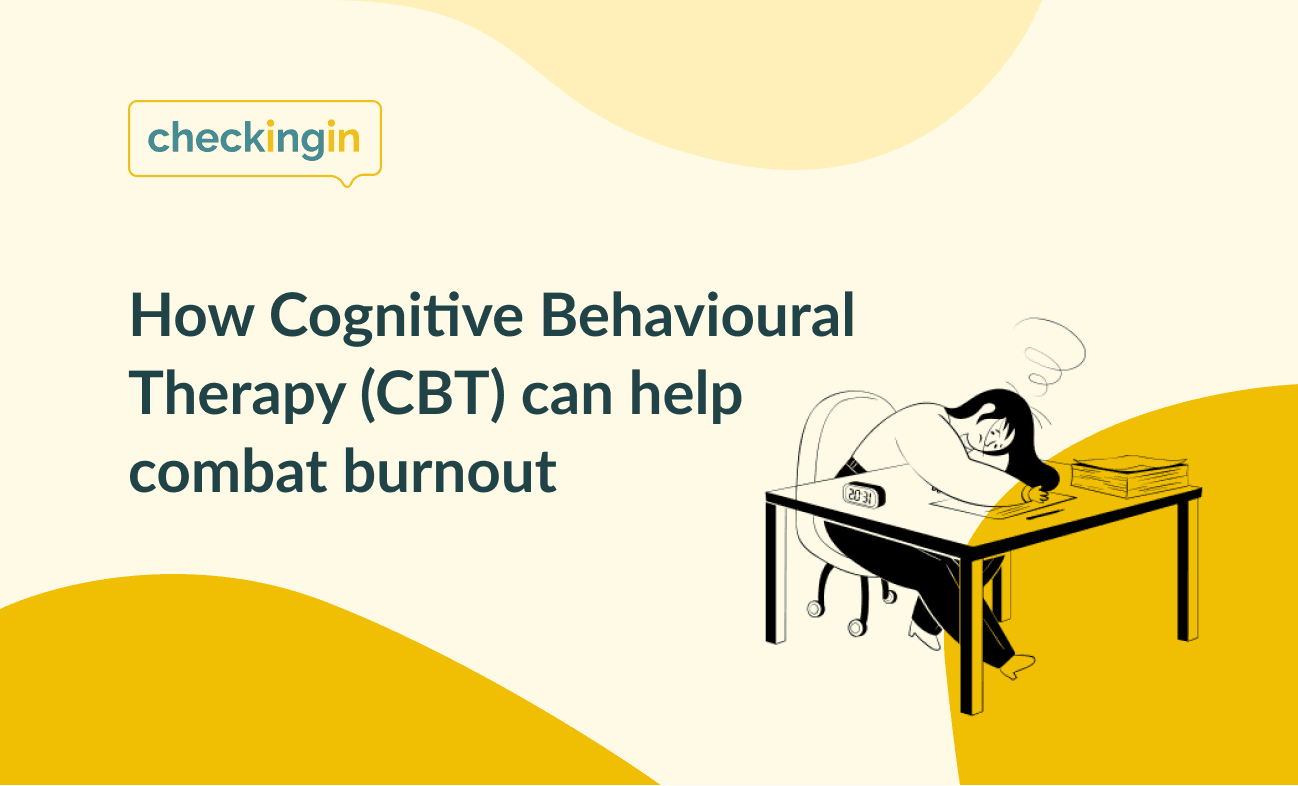How Cognitive Behavioural Therapy (CBT) Can Help Combat Burnout
February 18, 2022by Emma McILwane in Workplace Wellbeing
Exhaustion. We’ve all experienced it. But what’s beyond that? What happens when you’ve pushed yourself beyond your “limits”, and you essentially feel like you can give no more, and simply put, feel burnt out.
Burnout can be experienced at all ages, careers, and stages of life. Symptoms range from anxiety and depression to insomnia, fatigue, higher levels of procrastination, emotional absence and irritability.
A common misconception is that burnout only affects workaholics; however, with the impacts of COVID-19 and the seemingly constant uncertainty surrounding work, burnout has consistently been on the rise.
The Need to Disconnect
With more and more employees working remotely and from home, people are finding it more difficult than ever to keep a healthy work-life balance. Today's technology enables us to add work to our phones and combine our work emails with personal accounts. While this can make it easier to stay connected and allow us to work from anywhere, at what point do the lines start to blur? When work starts to creep into your evenings, when you can't seem to stop checking your email or slack messages, and you feel obligated to answer - at first, it may not seem like a big deal, but our inability to make the separation between work and day-to-day life can be a major source of burnout. It's essential that we make time for meaningful activities that help us unwind, relax and, most importantly, disconnect.
Researchers have found that Cognitive Behavioural Therapy (CBT) can help individuals build useful skills and strategies to combat burnout. This technique allows people to identify, question, and challenge intrusive thoughts, attitudes, and beliefs around a subject that may be causing emotional or behavioural strain.
When it comes to dealing with intrusive thoughts, one approach is to simply write them down. When you're trying to unwind and disconnect at the end of your day, and all you can think about is unfinished work, simply grab a pen and a piece of paper and write it out. This can work to shift unfinished tasks into a to-do list for the next day and can also help us to realize we might not have as much "unfinished" work as we thought. If these intrusive thoughts become more damaging and start to sound like: "I can't finish this task because I'm not good enough at my job," try writing out the opposite: " Someone assigned me this task because they know I'm capable of completing the task and producing quality work." This can help increase our confidence and allow us recognize catastrophic thoughts as only thoughts, not facts.
Progress over Perfection
CBT is also a great way to challenge perfectionism that can prevent restful healing time. Talking therapy, can help shift intrusive thoughts and perfectionist behaviours into positive statements. Gradually, over time, the embedded patterns of perfectionism can shift, and we can instead begin to practice mindfulness techniques that help us relax both in and outside of the workplace. Practicing mindfulness can help us address our stress, target it, and find ways to regulate it, ultimately reducing burnout.
In addition to CBT, try out some other activities that will help you let off some steam and decompress:
- Exercise - even if it's just a short 10-minute walk!
- Breathing Exercises - try one of our favorites, box breathing
- Meditation - take some time to tune in and listen to your mind and body
- Eat healthy foods - get some dark, leafy greens from your local grocery store and put together a tasty salad
- Get some quality zzz's - give yourself enough time to unwind and prep your body for bedtime
- Connect with someone you trust - connect with a friend or professional about how you're feeling
- Don’t be afraid of help - asking for help does not make you weak, in fact it makes you stronger for recognizing your inner self
- Find ways to just have fun!
To better your mind and body this year, try taking a look online for some local CBT resources or check to see what EFAP benefits your workplace may provide in terms of therapy services!

